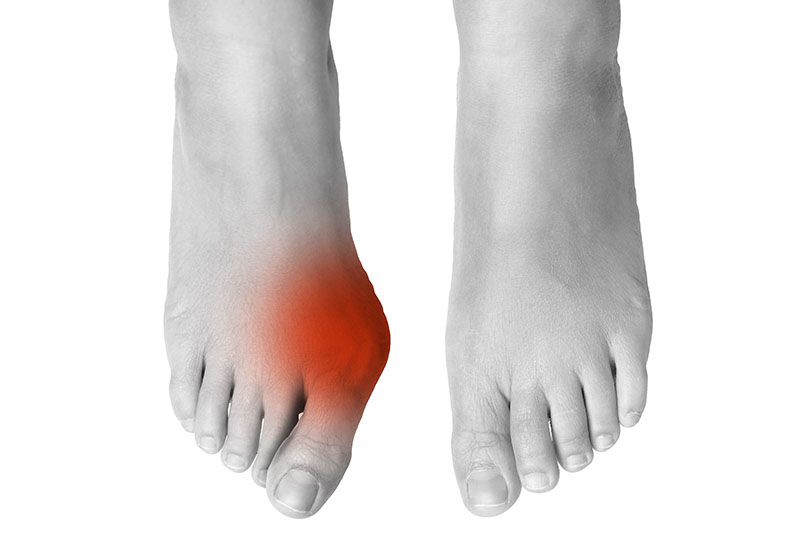Is walking barefoot good for bunions? GO BAREFOOT
Going barefoot is ideal in the beginning stages of bunions. When barefoot, the joints of the toes will get stronger, an important part of good foot health.
First, Why do people get bunions? What causes bunions? Bunions are generally thought to be genetic. They occur because of faulty foot structure, which is inherited. Some conditions that contribute to the development of bunions include flat feet, excessively flexible ligaments, and abnormal bone structure.
When should bunions be removed? Generally speaking, the following signs would likely cause us to recommend a surgical fix: You’ve been experiencing pain in your feet for a long period of time—usually at least one year. You’ve tried all applicable conservative treatment options and they haven’t worked, or are no longer working.
Second, How can I stop my bunion from getting worse? Bunion prevention and management: 5 things to start doing
- Make sure your shoes are the right size and fit.
- Avoid wearing high heels every day (or retire them altogether)
- Rest your feet.
- Do bunion stretches and exercises to strengthen your feet.
- Monitor your feet for changes.
How painful is bunion surgery? Is bunion surgery painful? No, the surgery itself isn’t painful. A local anesthetic will be used to numb your foot so you don’t feel pain. You will also be given a sedative to help make you more comfortable.
How much is bunion surgery?
The average cost of bunion surgery in the United States can range anywhere between $3,500 and $12,000 or more. But your actual out-of-pocket cost may be far less. Bunion surgery costs depend on the type of surgery you have, where you have the procedure, your health insurance or Medicare coverage, and more.
At what age do bunions develop?
Congenital hallux valgus: Some babies are born with bunions. Juvenile or adolescent hallux valgus: Tweens and teens between the ages of 10 and 15 may develop bunions. Tailor’s bunion: Also called a bunionette, this bunion forms on the outside base of the little (pinky) toe.
What causes a bunion to flare up?
Wearing tight, narrow shoes might cause bunions or make them worse. Bunions can also develop as a result of the shape of your foot, a foot deformity or a medical condition, such as arthritis. Smaller bunions (bunionettes) can develop on the joint of your little toe.
Does Epsom salt help bunions?
Tip #1 Soak Your Feet In Footbath
Soaking your feet in the water a few times a week can help reduce pain and inflammation. You can also add Epsom salt in warm water. The magnesium in salt can help stave off soreness and soothe your bunion.
Is going barefoot good for bunions?
GO BAREFOOT
Going barefoot is ideal in the beginning stages of bunions. When barefoot, the joints of the toes will get stronger, an important part of good foot health.
How can I reverse a bunion without surgery?
Alternatives to surgery also include the use of orthotics, injections of cortisone or oral anti-inflammatory medication as well as wearing shoes that accommodate the bunion deformity. In addition, using a bunion lasted shoe can allow an individual with a wide forefoot and a narrow rear foot to find comfort.
What happens if a bunion is left untreated?
If left untreated, a bunion can cause arthritis, especially if the joint in the big toe has sustained extensive, long-term damage. Bunions may cause the cartilage in the joint to deteriorate. While bunions can be remedied through surgery, arthritis and the possibility of chronic pain are not curable.
What are the five steps to fix a bunion?
Do toe spacers work for bunions?
Although toe separators can help prevent overlapping toes, there is no evidence to suggest that they will cure your bunions or provide any long-term correction for misaligned toes. They may provide some short-term relief but unfortunately the effects will not last and they certainly will not get rid of your bunions.






